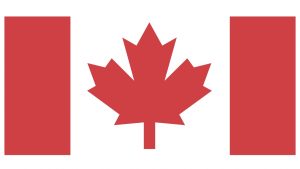Things To Know Before Moving To Canada: Thousands of people visit Canada every year because it has a reputation for being one of the finest places to live and work. Canada provides something for everyone, whether it’s a calm evening after work or a weekend spent partying all night. It is the world’s second-largest country, with a land size of around 10 million square kilometers. It would take about four years to walk the length of Canada’s coastline, so you can understand the scale.
To migrate to Canada, the first step is to determine whether you are eligible. You may start thinking about where you wish to reside after you’ve received confirmation. Select a province in which you have the highest chance of receiving a job offer and participating in an immigration program that will allow you to remain in Canada indefinitely.

Recommended: Most beautiful countries in the world
Important Things To Know and Consider Before Moving To Canada
1. Immigration to Canada Application: To guarantee that you are qualified for application, you must first establish your eligibility, after which you may pick the best immigration option for you before traveling to Canada. You must have been a permanent resident of Canada for several years before applying for citizenship and beginning the naturalization process.

Permanent residents of Canada are eligible for the majority of social benefits, can live, work, or study anywhere in Canada, and are protected by Canadian law, according to the Government of Canada website. Although there are other ways to become a permanent resident of Canada, the Canadian government recommends completing the Express Entry immigration screening procedure, which takes around six months.
Recommended: Countries with the best education system in the world
2. Cost of living: The cost of living in Canada varies, so where you choose to live or settle is a factor in your decision. A person who lives in a large Canadian city will not have the same costs as someone who lives in the country. The average cost of living in Canada for a single individual is $1702, while a family of four pays $3911. The rental cost is included in this figure. Without rent, the average Canadian could live comfortably at $736 per month.

Not just rent, but also food and transportation are included in these typical prices. If you own a car, these costs will be more than if you take public transit since you will have to pay for your car payment, insurance, and gasoline. In its annual report, the Canada Mortgage and Housing Corporation (CMHC) provides the average rent in Canada. Rent costs in urban areas are higher than in less populous or developed areas, according to this research. To get about, the majority of Canadians use public transit, bicycles, or walking.
Public transit in Canada is rather expensive. Your municipality determines the precise charge. The national average rent price is $2730 per month. It is expected that the price will continue to rise dramatically. Housing and utilities such as electricity, water, home heating, telephone service, and other household costs such as furniture, cutlery, dishes, and other supplies account for up to 50% of most Canadians’ income. It is critical for anyone planning to settle in any Canadian province to plan their rent or property purchase depending on their projected income.
The number of years it will take a highly talented worker in a developed city like Vancouver to purchase an apartment is different from the number of years it will take another competent person in Quebec to afford the same size flat. In Canada, the cost of food varies greatly between provinces and cities. Quebec, New Brunswick, Newfoundland & Labrador, and Nova Scotia are thought to spend less on food.
Provinces like Alberta, Saskatchewan, and British Columbia, on the other hand, have higher food expenses. According to a Global News study of Statistics Canada data, Canadians spend an average of $200 a month on store-bought food. Many Canadians gravitate to junk food as a result of the high cost of fruit and dairy goods. Many Canadians prefer to eat outside of their homes in order to have a quality dinner.
Also see: How to become a successful business entrepreneur
3. Canada’s Health System: Free health care is available to Canadian citizens and permanent residents. New and temporary residents, on the other hand, will most probably need to purchase a private health insurance plan before receiving a public health insurance card. Each province and territory in Canada has its own healthcare system.
After you’ve lived in Canada for at least a year as a permanent resident. While we have an incredible publicly financed healthcare system that offers free services to all permanent residents and citizens of Canada, not everything is free.
You may be eligible for all healthcare benefits for free, but you will be responsible for paying pricey or even affordable drugs on your own. Furthermore, in the country, dental care is not free.
4. The Official Language of Canada: With “co-official” languages, Canada is a multilingual country. English and French are the official languages of the Canadian federal government. Citizens have the option of communicating with federal government departments in either English or French, as well as receiving services in either language.
Employees in designated bilingual zones have the option of working in their preferred official language. The federal government of Canada is dedicated to improving the status and usage of English and French in Canadian society, as well as encouraging the growth of English and French language minorities.
The majority of Canadians, however, speak English, and many more speak a language other than English. Although provinces, municipalities, and private enterprises are not required to do so, all federal institutions are supposed to function in both languages.
Also see: Top tech companies in Canada
5. Cultural Diversity: We estimate the population to grow at a pace of around 1% per year, with an aim of welcoming approximately 400,000 immigrants each year. With this knowledge, it is simple to infer that Canada is a multicultural country, and all one needs to do is get on a bus or train in Vancouver or Toronto to see the incredible diversity that exists within our cities.

Many immigrants are attracted to Canada because of the equality with which individuals are treated. Our civilization is the complete antithesis of a class-based society. Irrespective of what work they do, what rank they have, or how much money they have, everyone has the same rights and freedoms.
People are supposed to treat one another with dignity and respect, in the same way, that they would say “I’m sorry.” If someone does not meet this criterion, they cannot expect to be regarded as a useful member of their community.
6. Canada Loves Sports, Food, and Maple Syrup: Ice hockey is Canada’s national sport, a contact sport that some Canadians play from the time they can walk until they retire, and occasionally even after that. We take to the frozen lakes and ponds that cover 9% of our nation when the football grounds are blanketed with snow.

You may join in by simply learning to ice skate; you’ll almost certainly receive assistance from your neighbors. If we take it seriously when we play it, we take it much more seriously when we support our local and national teams. The men’s hockey final between the United States and Canada at the 2010 Winter Olympics in Vancouver was the most-watched event in the country’s history.
Take a trip down to your neighborhood pub in the wintertime if you’re feeling sad, and you’ll find folks watching a hockey game. You’ll have to get used to Canadian cuisine, but if you become homesick, you’ll almost certainly be able to find a restaurant that serves food from your native country. Poutine, for example, is a popular Canadian delicacy consisting of hand-cut fries topped with cheese curds and gravy. While it may not first appear attractive, one bite may persuade you differently.
In Canada, maple syrup is a national preoccupation. The delectable, sticky slop can be found in almost every kitchen throughout the country. It’s as though the chemical is pouring through their bloodstreams. Maple trees may be found all throughout Canada, and when they turn a vivid crimson hue in the fall, they’re breathtaking.
Back in the day, natives in Quebec taught the French how to collect sap from maple trees and boil it to produce maple syrup. It was a successful collaboration that Canada should be proud of.
Also see: Cheapest universities in Canada to attend this year.
7. To Work in Canada, You’ll Need a Work Permit: If you are relocating to Canada and wish to work there, you will require a temporary foreign work permit. You must get a temporary foreign work permit (TFWP) before you may legally begin working in Canada, regardless of whether you have filed for permanent residence or already have PR status.

If you are detected working without a TFWP, you may be deported, thereby ending your chances of becoming a permanent residence. Furthermore, any job you conduct without a TFWP will not be considered in your permanent residency application. Always double-check that you have the necessary visa and papers for Canada.
8. Taxes: Individuals who live in Canada are required to pay Canadian income tax on their profits earned outside of Canada. Double taxation is avoided because of Canada’s international tax treaties, as well as foreign tax credits and deductions for foreign taxes paid on non-Canadian income.
Non-residents are subject to Canadian income tax on wages earned in Canada, profits earned from conducting a business in Canada, and capital gains from the sale of taxable Canadian property. Individuals who are only in Canada for a portion of the year are only taxed on their international income during that period.
Personal tax credits, miscellaneous tax credits, and the dividend tax credit are all subtracted from the tax in order to calculate the amount of federal tax owed.
Also see: Most difficult courses to study in the university
9. Canada’s animal friends: Canada’s official mascots are the moose and the beaver. They’re both on the money, and the two of them were standing in line behind the maple leaf, waiting to be placed on the flag. They have, however, become a nuisance, as have other national animals.
They do, however, enjoy crossing highways and aren’t particularly adept at it. Because moose-vehicle crashes may be fatal, caution signs abound on Canadian highways. The beavers are also up to naught good.
They’re attacking dogs, biting hands, flooding highways, and wreaking havoc in general. Some have tried to name them such, but it’s a contentious issue.
Recommended: Advantages and Disadvantages of studying abroad
Conclusion
Canada is a fantastic location to call home, whether you’re considering a transfer because of the recent election or for other reasons. Do you require proof? Look no farther than ice hockey (which was developed in Canada), Celine Dion (who was born in Canada), Martin Short, and, of course, poutine (which was invented in Canada).
It’s easy to see why thousands of Americans pack their belongings and relocate to this maple syrup hotspot every year, given the country’s attractions.

Edeh Samuel Chukwuemeka, ACMC, is a lawyer and a certified mediator/conciliator in Nigeria. He is also a developer with knowledge in various programming languages. Samuel is determined to leverage his skills in technology, SEO, and legal practice to revolutionize the legal profession worldwide by creating web and mobile applications that simplify legal research. Sam is also passionate about educating and providing valuable information to people.